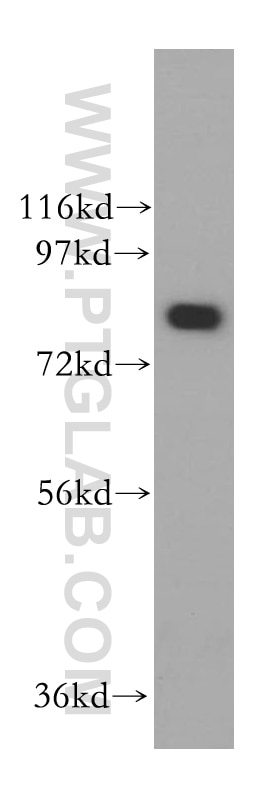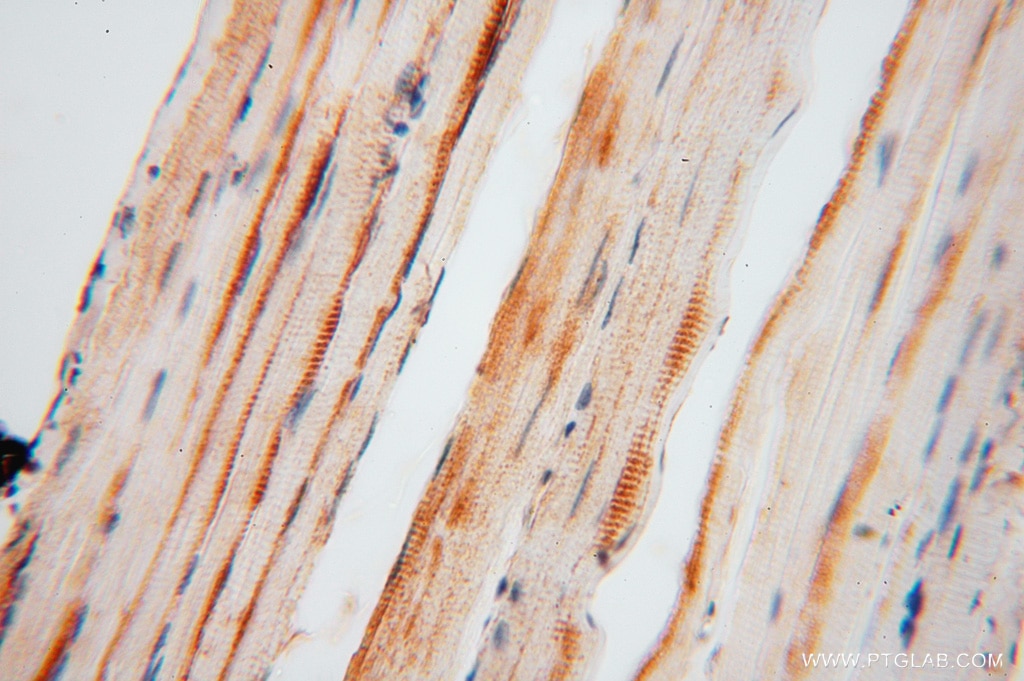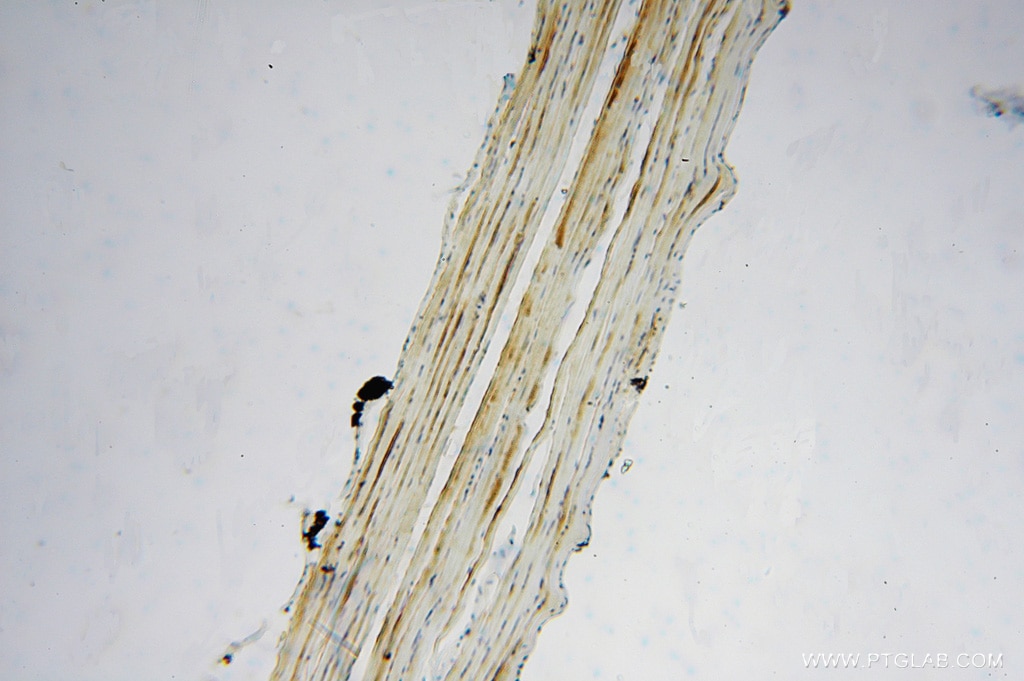Anticorps Polyclonal de lapin anti-FEM1A
FEM1A Polyclonal Antibody for WB, IHC, ELISA
Hôte / Isotype
Lapin / IgG
Réactivité testée
Humain
Applications
WB, IHC, ELISA
Conjugaison
Non conjugué
N° de cat : 15169-1-AP
Synonymes
Galerie de données de validation
Applications testées
| Résultats positifs en WB | cellules U-937 |
| Résultats positifs en IHC | tissu de muscle squelettique humain il est suggéré de démasquer l'antigène avec un tampon de TE buffer pH 9.0; (*) À défaut, 'le démasquage de l'antigène peut être 'effectué avec un tampon citrate pH 6,0. |
Dilution recommandée
| Application | Dilution |
|---|---|
| Western Blot (WB) | WB : 1:200-1:1000 |
| Immunohistochimie (IHC) | IHC : 1:20-1:200 |
| It is recommended that this reagent should be titrated in each testing system to obtain optimal results. | |
| Sample-dependent, check data in validation data gallery | |
Informations sur le produit
15169-1-AP cible FEM1A dans les applications de WB, IHC, ELISA et montre une réactivité avec des échantillons Humain
| Réactivité | Humain |
| Hôte / Isotype | Lapin / IgG |
| Clonalité | Polyclonal |
| Type | Anticorps |
| Immunogène | FEM1A Protéine recombinante Ag7357 |
| Nom complet | fem-1 homolog a (C. elegans) |
| Masse moléculaire calculée | 74 kDa |
| Poids moléculaire observé | 74 kDa |
| Numéro d’acquisition GenBank | BC004988 |
| Symbole du gène | FEM1A |
| Identification du gène (NCBI) | 55527 |
| Conjugaison | Non conjugué |
| Forme | Liquide |
| Méthode de purification | Purification par affinité contre l'antigène |
| Tampon de stockage | PBS with 0.02% sodium azide and 50% glycerol |
| Conditions de stockage | Stocker à -20°C. Stable pendant un an après l'expédition. L'aliquotage n'est pas nécessaire pour le stockage à -20oC Les 20ul contiennent 0,1% de BSA. |
Informations générales
FEM1A, also named as Protein fem-1 homolog A-A, is a 654 amino acid protein, which Belongs to the fem-1 family. FEM1A is highly expressed in adult heart and skeletal muscle. FEM1A is a Probable component of an E3 ubiquitin-protein ligase complex, in which it may act as a substrate recognition subunit. FEM1A may participate in antiinflammatory signaling via its interaction with PTGER4.Furthermore, Fem1aexpression is down-regulated in rhabdomyosarcoma cells suggesting that the FEM1A gene may be involved in muscle differentiation or be at least a marker of abnormal differentiation in rhabdomyosarcoma. Knowing that a molecular weight of 76 kDa is predicted for human FEM1A, but phosphorylated FEM1A is 95-100 kDa (PMID: 19406122).
Protocole
| Product Specific Protocols | |
|---|---|
| WB protocol for FEM1A antibody 15169-1-AP | Download protocol |
| IHC protocol for FEM1A antibody 15169-1-AP | Download protocol |
| Standard Protocols | |
|---|---|
| Click here to view our Standard Protocols |




